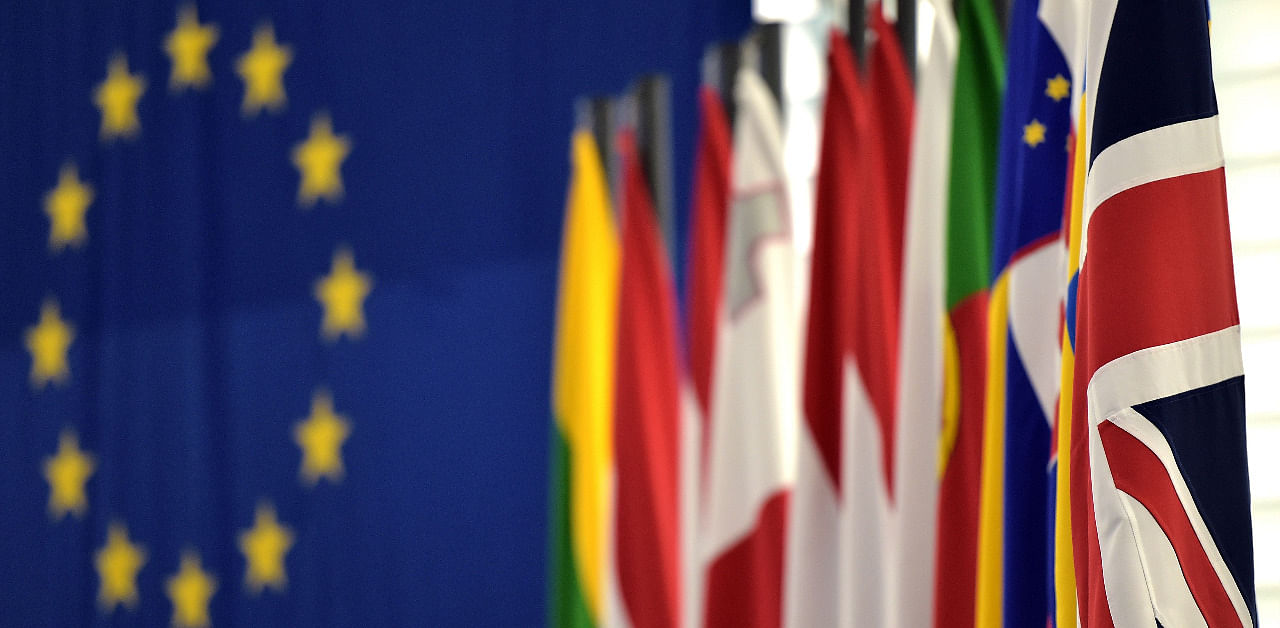
The EU has rejected the latest UK offer on fishing but is ready to pursue a post-Brexit trade deal even beyond the end of the year, diplomats said on Tuesday.
According to sources in a meeting of ambassadors, EU negotiator Michel Barnier can not guarantee there will be a deal but Brussels' "door will remain open" even after Britain leaves the single market.
"EU negotiators are in a last push now to make progress and to clinch a deal acceptable for both sides," Barnier said, according to a European diplomat, in an account matched by two others.
"The EU will not close its door to the UK and remains ready to negotiate even beyond January 1".
According to the diplomats, Britain had suggested EU access to UK fish stocks be reduced by 35 per cent, phased in over three years. The EU had suggested a level 25 per cent, and over six years.
But, crucially, the British offer did not include "pelagic fish" -- those that swim freely away from coasts or the seabed. If these fish are included the EU would lose 60 per cent of its current access, they said.
This marked a step too far for member states with northern fishing fleets, like France, Denmark and the Netherlands.
"Progress has been made. Most issues are preliminarily closed or close to being agreed," one diplomat said, recounting Barnier's briefing to EU ambassadors.
"However, differences on fisheries remain difficult to bridge. Unfortunately, the UK is not moving enough yet to clinch a fair deal on fisheries."
Before heading into the closed door meeting, Barnier told reporters: "We are really in the crucial moment, and we are giving it the final push.
"In 10 days the UK will leave the single market and I will continue to work, in total transparency with the member states and the parliament."
If the talks between Barnier and his UK counterpart David Frost fail to reach a breakthrough in the coming days, the UK will leave without a follow-on trade deal.
Tariffs would be reimposed on cross-Channel trade in food and goods, exacerbating the economic shock of a return to a border after 47 years of integration.
But the talks are deadlocked over how to ensure fair trade rules are respected in the future and, especially, over how to assign fishing rights in UK waters.
On Monday, British Prime Minister Boris Johnson and EU chief Ursula von der Leyen held a crisis call to discuss the Brexit talks but failed to make a breakthrough.
The eleventh-hour talks have also been overshadowed by the fast-moving crisis over the new coronavirus strain found by London.
Amid reports the new strain might spread more quickly than previous ones, 40 countries in Europe and around the world cut travel links to Britain.
The EU is scrambling to come up with a coordinated response after cross-channel traffic was left snarled as France shut down entry for passengers and goods.
Ambassadors from the bloc's 27 members were seeking to hammer out a joint plan to allow cargo to start moving again and EU nationals to return home.
Von der Leyen's Commission has recommended that blanket bans be discontinued in order to allow essential passenger travel and freight shipments to resume.
But Germany and Ireland have already renewed their precautionary bans and France is in talks with London over instituting virus tests for truck drivers.